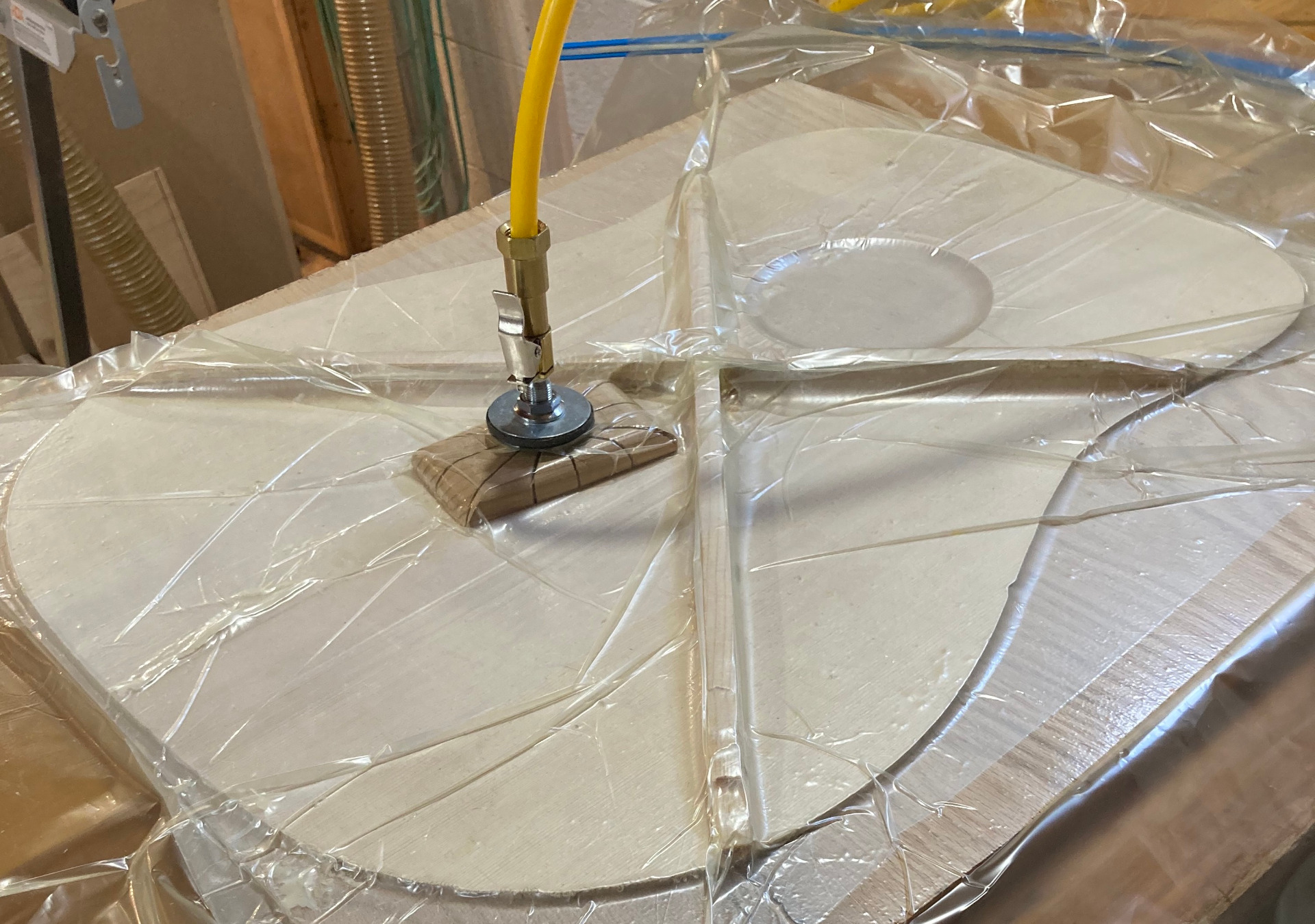Integral X Brace

The X-bracing system is a fundamental component of the modern acoustic guitar, and it is always made from two pieces of wood notched where they cross, then patched in some way to repair the notching. I have developed what I think is a better way to execute the X brace in which there is no
notch and therefore nothing to repair.
The C. F. Martin company is generally credited with
inventing the X Brace in the 1840s, and it was a strictly American departure from the fan bracing of
European guitars and the ladder bracing of earlier
instruments. It quickly became the de-facto standard
for American steel string guitars.
There
are several ways to repair the notch - many old Martins have a cloth
patch glued over the X joint to strengthen it; another method is to glue
a piece of wood over the notch onto brace extending a ways past the
notch. My method joins the two braces into an integral structure at the X. There is no notch, and therefore nothing to repair.

When I say "better", I mean the result is a guitar with better sound in the end, not better as faster, cheaper, or easier to do.
I lay up many layers of tone wood in the X shape, alternating between the two branches of the X, so that in the end the two
braces literally pass through each other. They are welded together at the X in many long-grain-to-long-grain glue joints, which are the strongest kind. Each layer is 25/1000ths of an inch, so there are about 20 - 30 layers in each brace.

Once all the layers are cut and arranged, I apply glue and use a vacuum press to glue them to each other and to soundboard.
The vacuum press provides uniform and consistent pressure across the braces, regardless of the shape of the top. This top is flat, but still has a somewhat complex geometry on the underside on account of being a half-double top (the subject of another post).
An advantages of the vacuum press with this method is that the braces automatically conform to the shape of the underside of the top, even if it is different than the shape of the top of the top

When all is said and done, the X brace looks more or less like any other and functions in the same manner, except that it is much stronger and can therefore be smaller and lighter. This results in a louder guitar with more headroom and a larger dynamic range.. If you look at the X portion of the brace, you can see that the two pieces of wood appear to pass right through each other